
Synchronized Sonic Space Techniques for Achieving Uniform Auditory Dynamics Across Video Content

Synchronized Sonic Space: Techniques for Achieving Uniform Auditory Dynamics Across Video Content
Best Volume Normalizers: How to Normalize Audio in Videos?

Shanoon Cox
Mar 27, 2024• Proven solutions
Audio recordings are not always perfect since they can often be too loud or nearly inaudible. In case you are dealing with an audio or video file that has an unbalanced volume you can try to fix this issue by using the audio normalization features which video and audio editing apps for Mac and PC computers offer.

- Part 1: What is Audio Normalization?
- Part 2: How to Normalize Audio [Tutorial]
- Part 3: Top Sound Normalizers
- Part 4: Audio Normalization Tips
What is Audio Normalization?
There are two different types of audio normalization, peak normalization, and loudness normalization. The peak normalization changes the gain that is being applied in order to reduce the highest PCM sample value down to 0 dB, while the loudness normalization reduces the average amplitude to the chosen level. However, the majority of video and audio editing apps combine these two types of audio normalization into a single feature. So, in this article, we are going to show you how you can quickly normalize audio with different video and audio editing apps.
How to Normalize Audio?
The most common reason for using audio normalization features is to bring the audio level of several different audio clips to the same level. In addition, audio normalization can help you make inaudible narration or dialogue a bit louder. If you want to make your vocals pop over the background music, all you have to do is download a versatile software - Filmora from Wondershare . The latest version of Filmora has released a new function - audio ducking, which helps you increase your vocals while lower the background music with ease. Download it for free!
After installing Wondershare Filmora, just read this complete guide of using audio ducking in Filmora .
Step 1: Drag and drop multiple video or audio files into the timeline and select one clip you want to hear more clearly.
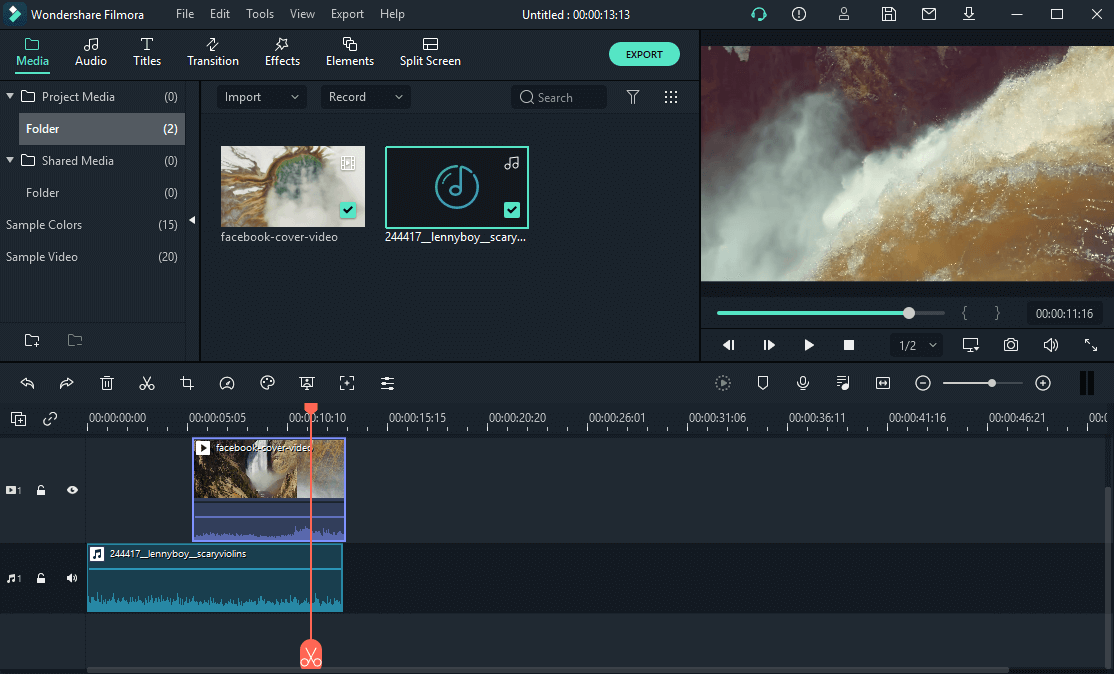
Step 2: After right-clicking the clip, you can select “Adjust Audio”.
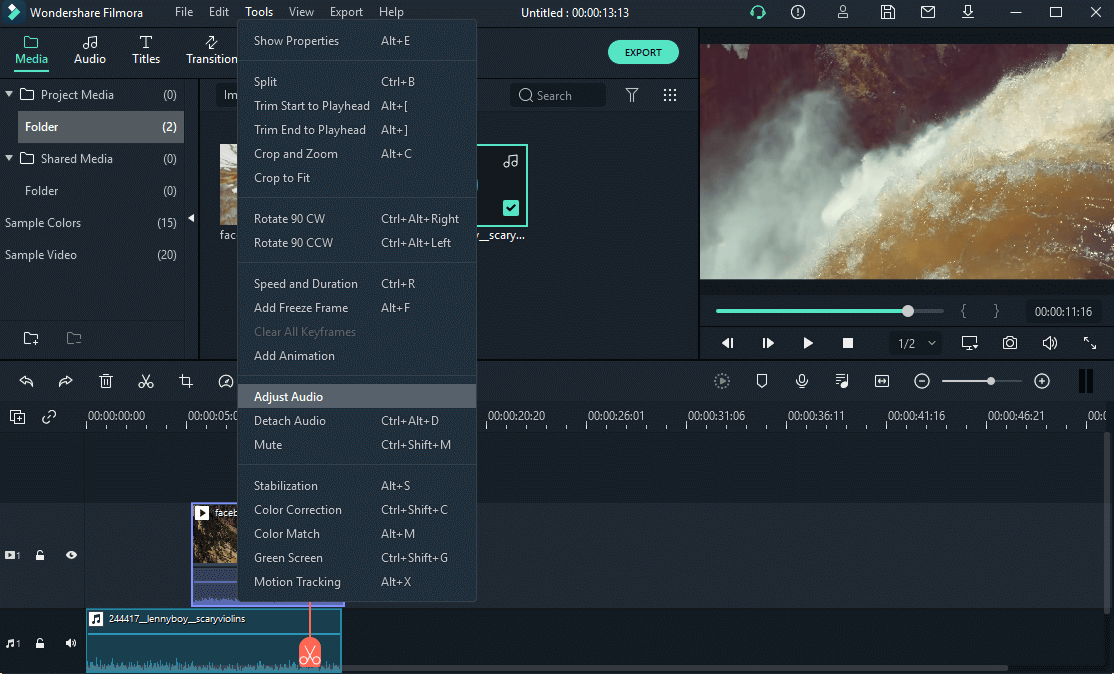
Step 3: Click “Lower the volume of other clips” and adjust the percentage according to your need.
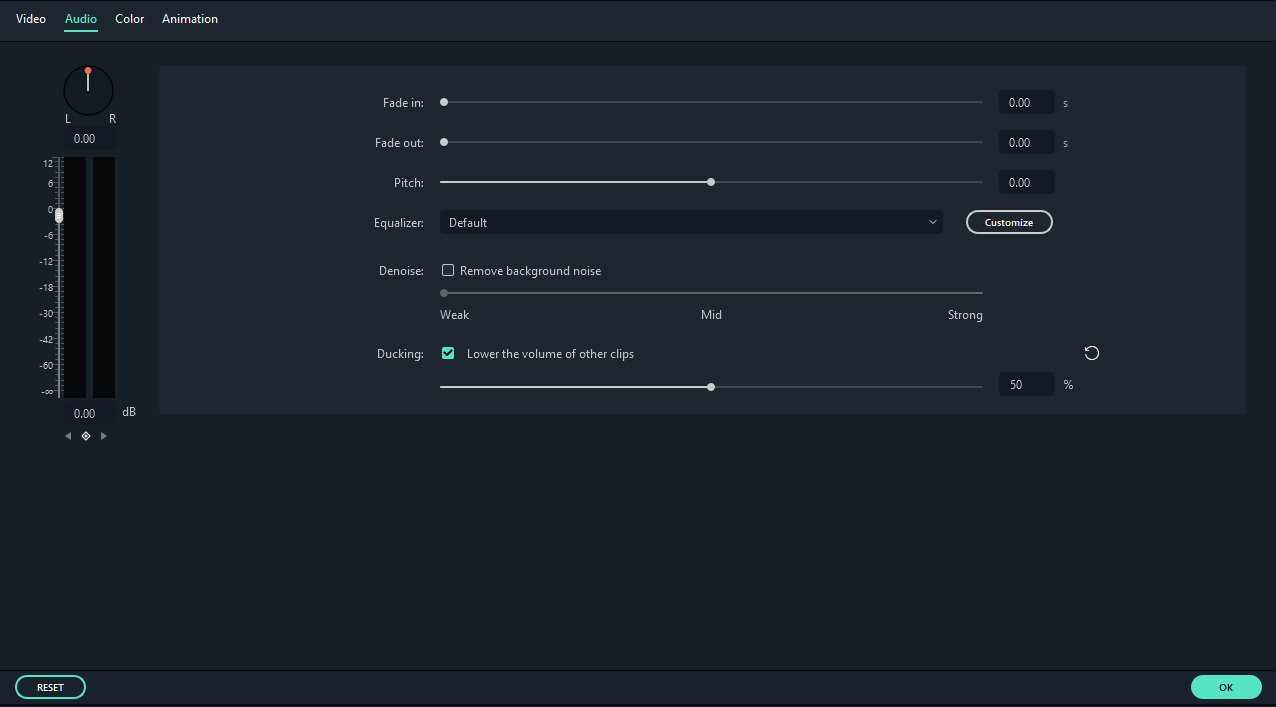
Best 3 Audio Normalizers
Except for Wondershare Filmora, there are other audio normalizers that you can use when you are edit videos. Moreover, we will know the steps of normalizing audios with these sound normalizers.
1. iMovie
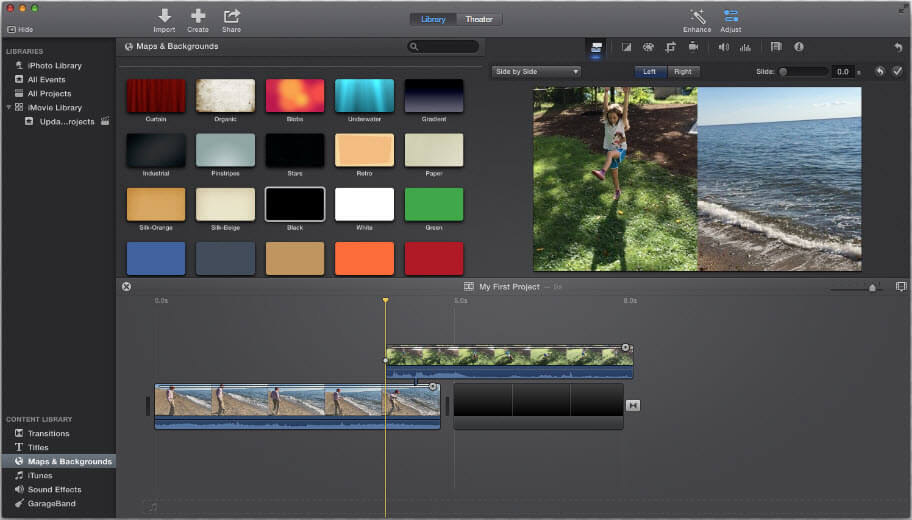
Price: Free
Compatibility: macOS
Mac users don’t need a special introduction to this iconic video editing app that has been featured on all versions of macOS that were released since 2003. The process of normalizing audio with iMovie is rather simple as you just have to import an audio or video file that contains sound into the Project Browser and double-click on it. Once the Inspector pops up on the screen you should select the Audio option and click on the Normalize Clip Volume setting. iMovie will then normalize the audio in the selected file, so you should just wait for the process to be over and click Done afterward.
2. Movavi
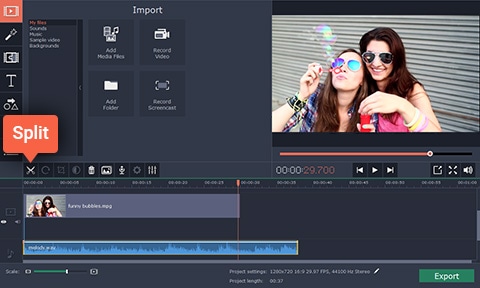
Price: $79.95 for a lifetime license
Compatibility: Windows, macOS
Movavi video editor offers all the tools you are going to need to finish the video editing process quickly. This video editing software for Mac and PC computers is best suited for video content creators who don’t have a lot of experience, although skilled video editing professionals can also use it to edit their footage. The audio normalization process in Movavi can be completed in just a few easy steps. After creating the project in the Full Feature Mode, you should click on the Add Media Files icon and import the files you’d like to use in that project. Place the files to the appropriate track on the timeline and then double-click on the file that is located on the audio track. Once the Tools panel appears on the screen, you just have to make sure that the Normalize tickbox is checked and Movavi will normalize the audio automatically.
3. Audacity
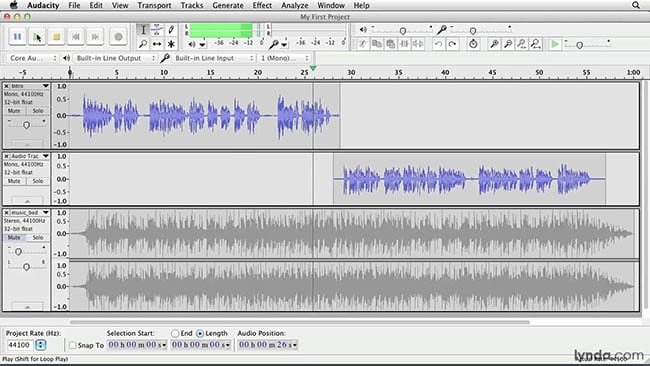
Price: Free
Compatibility: Linux, Windows, macOS
Audacity is a professional audio editing app that lets you record and edit sound for your videos. You can use this app to create sound effects, merge multiple audio files together, or record narration for each new video you create. Normalizing audio with Audacity is easy because you just have to add the audio clips to the timeline and make sure that the track to which you added a file is selected. The app also lets you select more than just one track, so you can place audio files to two or more tracks and files from each track are going to be adjusted to the same audio level. Once you’ve selected a track or tracks that contain audio clips you’d like to normalize, head over to the Effects menu, choose the Normalize option, and hit OK.
Tips on Audio Normalization
A single scene can contain a lot of different sounds. The sound of someone’s footsteps, ambient sounds, or the dialogue are just a few examples of sounds that are frequently used in videos and movies. The audio volume of each of these sounds shouldn’t be the same, because if the ambient sounds are as loud as the dialogue the audience may find it hard to understand what the characters in that scene are saying. That’s why you should use audio normalization only when you are absolutely sure that using the same audio volume level for two or more audio clips won’t disrupt the flow of your video.
Conclusion
Even though normalizing audio with each of the video editing software products we featured in this article is a straightforward process, this option should only be used if you have no other way to balance the audio volume of a video or an audio file. Which video editing app for Mac and PC computers do you like to use the most to normalize audio in your videos? Leave a comment and share your experiences with us.

Shanoon Cox
Shanoon Cox is a writer and a lover of all things video.
Follow @Shanoon Cox
Also read:
- [New] Creative Music Videos A List of 15 YouTube Projects
- [New] Reversed Video Techniques for Instagram Savvy Users for 2024
- [Updated] YouTube's Essential Learning Resources for Upcoming Directors
- 2024 Approved Unveiling Fake Supporters A Tactical Approach for Brands
- In 2024, Mastering Audio Clarity Simplified Techniques for Noise Elimination in Audacity & FilmoraPro
- In 2024, Top 10 Fingerprint Lock Apps to Lock Your Xiaomi Redmi Note 12 4G Phone
- In 2024, Top 4 SIM Location Trackers To Easily Find Your Lost Realme C53 Device
- In 2024, Unveiling the Best Practices for Instagram Story Screenshots
- Instantaneous Strategies for Silencing Auditory Ground Hum
- New In 2024, 5 Leading Digital Audio Workstation Options for Professional Guitarists, Updated
- New The 5 Most Advanced Tools for Shaping and Sculpting Sound for 2024
- New Uncover Linguistic Groan Phenomenon
- Professionals Guide to the Top Vocal Dampening Software for Musicians and Producers
- Property Component Management Solutions
- Questioning AI Trust: ZeroGPT’s Shortcomings
- Troubleshooting and Solutions for Windows 11'S Red Screen Error
- Updated From Apple to Your Computer Establishing a Connection Between AirPods and PCs
- Updated Techniques for Transforming Your Voice Pitch and Quality
- Updated Track Down Virtual Quest Music and Effects
- Title: Synchronized Sonic Space Techniques for Achieving Uniform Auditory Dynamics Across Video Content
- Author: Paul
- Created at : 2025-02-07 02:29:22
- Updated at : 2025-02-10 02:27:23
- Link: https://voice-adjusting.techidaily.com/synchronized-sonic-space-techniques-for-achieving-uniform-auditory-dynamics-across-video-content/
- License: This work is licensed under CC BY-NC-SA 4.0.

